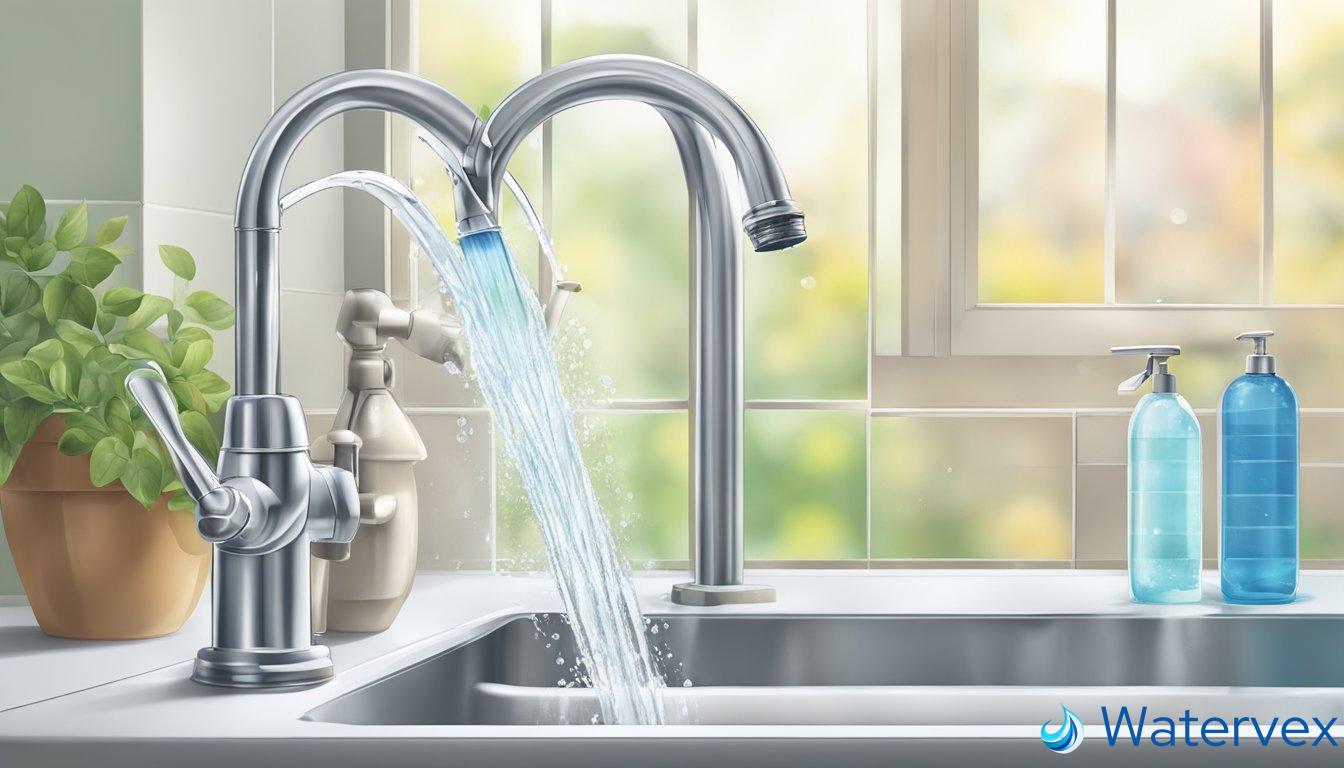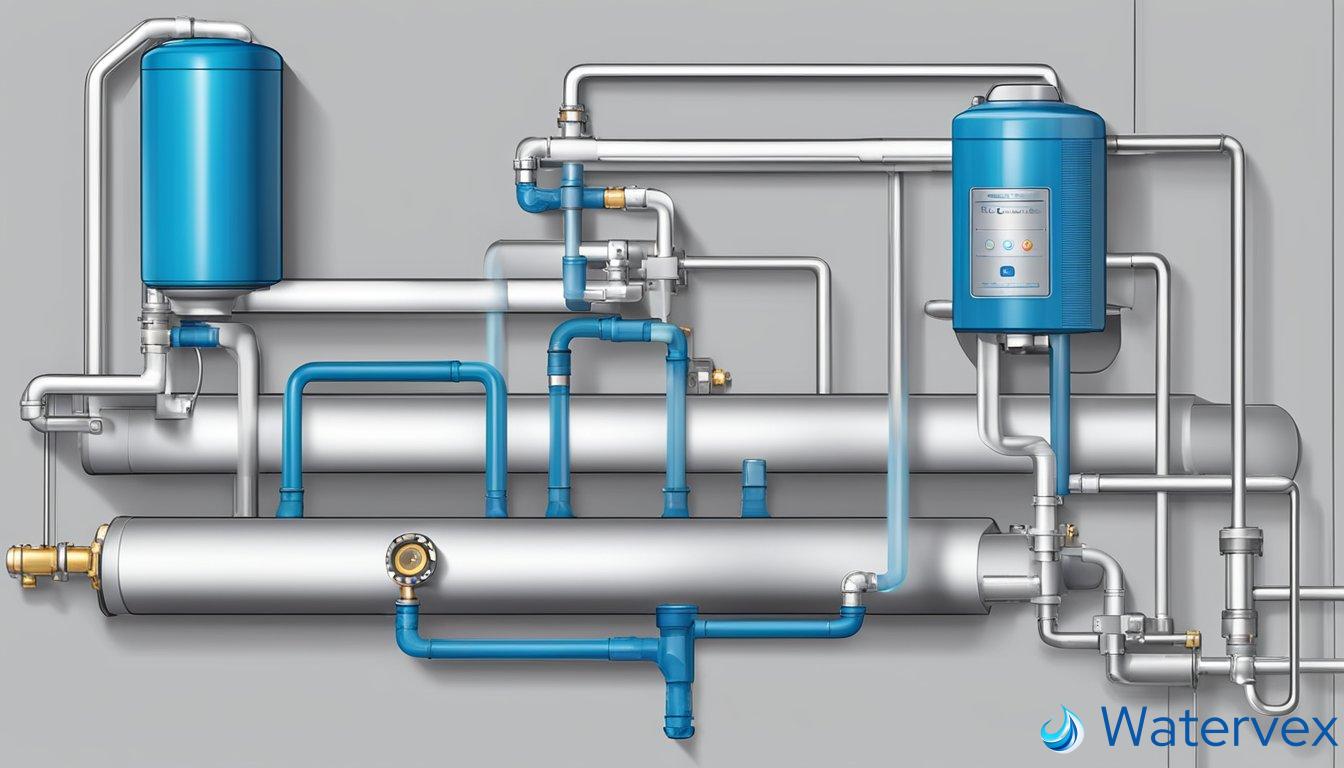Water conditioners are an essential consideration for households grappling with the effects of hard water. Unlike traditional water softeners that replace calcium and magnesium ions with sodium to combat hardness, water conditioners work by altering the mineral ions chemically or physically so that they don’t deposit scale. This can be a crucial investment in areas where hard water is prevalent, as it offers a way to protect plumbing systems and improve the lifespan and efficiency of home appliances.

Installing a water conditioning system isn’t just about preventing scale; it’s also about the quality of the water you use and drink every day. Advanced water conditioners can help mitigate the potential health impacts of excessive mineral content while ensuring that the water retains beneficial minerals. It’s a practical approach to improving water quality without the added sodium that comes with traditional water softening methods.
Key Takeaways
- Water conditioners offer a solution to hard water without relying on traditional salt-based softeners.
- These systems can contribute to the longevity and efficiency of household appliances and plumbing.
- Maintaining water quality while retaining essential minerals is a key benefit of using water conditioners.
What Is a Water Conditioner and How Does It Work?
Water conditioners are systems that manage hard water issues without the need for salt or chemicals involved in traditional water softening. Understanding their operation and technology can help you choose the right solution for your home’s water.
Understanding Water Conditioners
Water conditioners are devices that condition your water by targeting the problematic minerals—mainly calcium and magnesium—that cause water hardness. Unlike softeners, they don’t remove these minerals; instead, they change their form so that they no longer lead to the buildup of scale. There’s a growing focus on technologies such as TAC (template-assisted crystallization) and NAC (nucleation-assisted crystallization) for achieving this effect, as they’re efficient and eco-friendly options.
Comparing Water Softeners and Conditioners
While water softeners typically use ion exchange processes, adding sodium to the water to replace the hard minerals, salt-free water conditioners do something quite different. They alter the structure of the minerals through physical or chemical means, essentially neutralizing their ability to cause scale. As a result, water conditioners are often preferred by those seeking a low-maintenance, salt-free option.
Key Technologies in Water Conditioning
At the heart of modern water conditioning are technologies like Template-Assisted Crystallization (TAC) and Nucleation-Assisted Crystallization. TAC units contain scale control media (SCM) that transforms minerals into harmless, microscopic crystals. This process doesn’t strip minerals from the water but prevents them from sticking to surfaces and forming scale. With these systems, you can expect to tackle hard water problems without the added sodium or waste produced by softeners.
Why Should Households Consider Installing a Water Conditioning System?

Installing a water conditioning system comes with a range of advantages, particularly in regions where hard water is common. These systems address issues such as scale buildup and the presence of minerals like calcium and magnesium, benefitting appliances, health, and economics.
Benefits for Appliances and Plumbing
Water conditioners work to mitigate the effects of hard water minerals by transforming the chemical structure of calcium and magnesium, which are notorious for causing scale. Here’s how appliances and plumbing benefit:
- Reduces limescale accumulation in pipes and on heating elements, significantly extending the life of appliances such as washing machines, dishwashers, and water heaters.
- Enhances washing efficiency by allowing soaps and detergents to dissolve more effectively, leaving less residue on clothes and dishes.
Health and Environmental Considerations
Choosing a water conditioning system can also be an eco-friendly decision with implications for your health:
- Decreases the need for chemical-based water softeners, which often involve salt that can seep into and harm the environment.
- Aids in removing various contaminants, supporting a cleaner and potentially safer water supply for your household.
Economic and Efficiency Advantages
The economic benefits of installing a water conditioner include:
- Diminished water hardness contributes to lower maintenance and repair costs over time, due to less wear and tear on your plumbing system.
- Improved efficiency of appliances can lead to reduced energy consumption, saving money on utility bills.
How Do Water Conditioners Protect Home Appliances and Plumbing?

Water conditioners play a crucial role in safeguarding your home’s appliances and plumbing from the damaging effects of hard water. Shedding light on how they work could save you from future headaches associated with maintenance and appliance efficiency.
Scaling Effects on Home Infrastructure
If you’ve noticed a white, chalky buildup on your faucets, that’s limescale, a common result of hard water. This limescale can impede water flow and heat transfer within your plumbing system. A water conditioner alters the structure of the minerals that cause this buildup, helping to prevent scaling and maintaining the integrity of your pipes.
- Reduces: Limescale buildup.
- Prevents: Pipe blockages and corrosion.
Maintenance and Lifespan of Appliances
Appliances, like your dishwasher or water heater, are particularly vulnerable to the sediment found in hard water. Sediment accumulation can reduce efficiency and function, leading to costly repairs. The technology in a water conditioner minimizes these abrasive minerals, prolonging the life of your appliances and cutting down on maintenance costs and efforts.
- Protects: Appliances from damage.
- Extends: Lifespan by reducing wear and tear.
Tailoring Solutions to Water Quality Issues
Every home’s water contains a unique mix of minerals and impurities. A water conditioner can be tailored to address specific water quality issues, therefore enhancing the performance of both your water softener (if used in conjunction) and your home’s appliances. This tailored approach ensures that the water flowing through your appliances and plumbing is optimized for safety and longevity.
- Customizes: Treatment based on water tests.
- Improves: Overall water quality and appliance performance.

